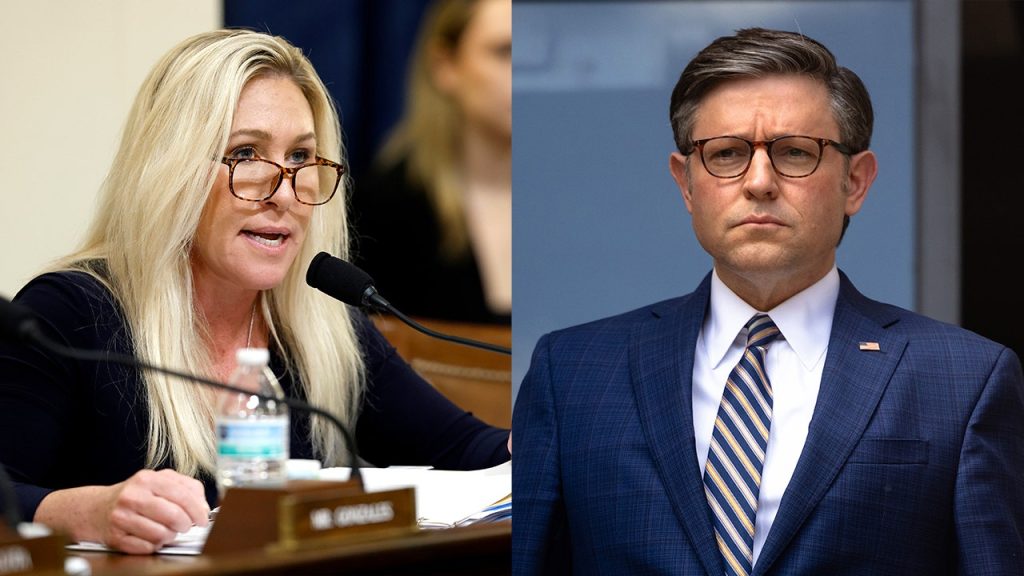Rep. Marjorie Taylor Greene, R-Ga., has been vocal about her belief that bills should only be brought to the floor if they are supported by a majority of the majority. This principle, known as a “majority of the majority,” means that at least 109 Republicans should be in favor of an issue before voting on it. However, Greene’s recent attempt to remove House Speaker Mike Johnson, R-La., did not meet this standard, as only 11 Republicans supported her motion. Despite this, Greene’s resolution was soundly defeated by a vote of 359-43, showcasing the House’s view on the matter.
Greene’s efforts to remove Johnson raised questions about Speaker Johnson’s leadership and exposed divisions within the Republican party. While 196 out of the 217 House Republican Conference members voted against Greene’s motion, a significant number of Democrats supported Johnson, leading to his retention as Speaker. If not for the Democratic support, Johnson would have been removed from his position, highlighting the importance of bipartisan alliances and support in the House.
Despite Greene’s failure to garner enough support for her motion, she has made a significant impact, drawing attention from the Congressional press corps and sparking debates within the Republican party. While she may have alienated some of her GOP colleagues, Greene’s determination in challenging the status quo has sparked conversations about party unity and the effectiveness of her methods. Republican members expressed mixed reactions to Greene’s actions, with some criticizing her approach as destructive and others questioning her motives.
After her failed attempt to remove Johnson, Greene highlighted her dissatisfaction with the Speaker’s leadership, referring to his foreign aid package as a betrayal of the American people. However, Greene’s motion did not result in any concessions from Johnson, prompting doubts about the impact of her actions. Despite this, Greene remains determined to challenge the leadership and direction of the Republican party, signaling a potential for further controversies and disruptions in the future.
Democratic intervention played a crucial role in preserving Johnson’s Speakership and ensuring the continued functioning of the House. Without Democratic support, the House could have faced a crisis as the FAA reauthorization bill was passed right before Greene’s motion to remove Johnson. Democratic assistance prevented a potential shutdown of the House and kept critical operations running smoothly, demonstrating the importance of bipartisan cooperation in maintaining the functioning of the legislature.
Looking ahead, Greene’s actions have sparked debate and speculation about potential consequences and future challenges within the Republican party. While some members have expressed concerns about the chaos caused by Greene’s motions, others see her actions as reflective of a broader dissatisfaction with the current leadership. Whether Greene will face sanctions or further challenges remains uncertain, but her defiance and determination have highlighted deep divisions and debates within the House.


